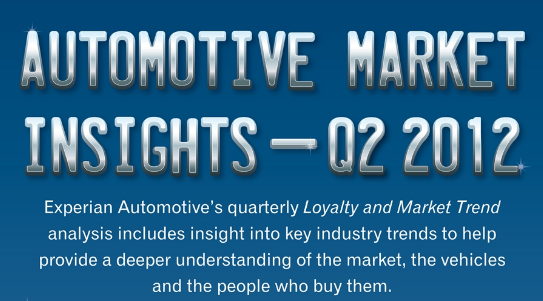Featured
Featured

Balancing holiday marketing efforts with fraud prevention requires a coordinated approach according to survey findings from 41st Parameter, a part of Experian. The survey results from 250 marketers released today, looks at the relationship between omnichannel retailing, fraud prevention and the holiday shopping season. The findings show that few marketers understand the full benefit of fraud-prevention systems on their activities as 60 percent of marketers were unsure of the cost of fraud to their organization. The survey also indicated that 40 percent of marketers said their organization had been targeted by hackers or cybercriminals. Download the Holiday Marketing Fraud Survey: http://snip.ly/JoyF With holiday shopping in full stride, 35 percent of businesses said they planned to increase their digital spend for the 2014 holiday season. Furthermore, Experian Marketing Services reported that during 2014, 80 percent of marketers planned on running cross-channel marketing campaigns. As marketers integrate more channels into their campaigns, new challenges emerge for fraud-risk managers who face continuous pressure to adopt new approaches. Here are three steps to help marketers and risk managers maintain a frictionless experience for customers: Marketers should communicate their plans early to the fraud-risk team, especially if they are planning to target a new or unexpected audience. Making this part of the process will reduce the chances that risk management will stop or inhibit customers. Ensure that marketers understand what the risk-management department is doing with respect to fraud detection. Chances are risk managers are waiting to tell you. Marketers shouldn’t assume that fraud won’t affect their business and talk to their risk-management division to learn how much fraud truly costs their company. Then they can understand what they need to do to make sure that their marketing efforts are not thwarted. “Marketers spend a great deal of time and money bringing in new customers and increasing sales, especially this time of year, and in too many cases, those efforts are negated in the name of fraud prevention,” said David Britton, vice president of industry solutions, 41st Parameter. “Marketers can help an organization’s bottom line by working with their fraud-risk department to prevent bad transactions from occurring while maintaining a seamless customer experience. Reducing fraud is important and protecting the customer experience is a necessity.” Few marketers understand the resulting impact of declined transactions because of suspected fraud and this is even more pronounced among small businesses, with 70 percent saying they were unsure of fraud’s impact. Fifty percent of mid-sized business marketers and 67 percent of large-enterprise marketers were unsure of the impact of fraud as well. An uncoordinated approach to new customer acquisition can result in lost revenue affecting the entire organization. For example, the industry average for card-not-present declines is 15 percent. However, one to three percent of those declined transactions turn out to be valid transactions, equating to $1.2 billion in lost revenue annually. Wrongfully declined transactions can be costly as the growth of cross-channel marketing increases and a push towards omnichannel retailing pressures marketers to find new customers. “Many businesses loosen their fraud detection measures during high peak time because they don’t have the tools to review potentially risky orders manually during the higher-volume holiday shopping period,” said Britton. “Criminals look to capitalize on this and exploit these gaps in any way possible, taking an omnifraud approach to maximizing their chances of success. Striking the right balance between sales enablement and fraud prevention is the key to maximizing growth for any business at all times of the year.” Download Experian’s fraud prevention report to learn more about how businesses can address these new marketing challenges.

World Cup fans will be watching the 2014 games across multiple devices, often simultaneously, according to an analysis from Experian Marketing Services, a global provider of integrated consumer insight, targeting, data quality and cross-channel marketing. Specifically, World Cup fans are 31 percent more likely than average to watch online video across multiple devices, with 64 percent of adult fans watching online video during a typical week, compared with 49 percent of all adults. This is according to Experian Marketing Services’ National Consumer Survey, a nationally representative, continuously fielded survey of approximately 25,000 U.S. adults, including both English and Spanish speakers.

 Did you know that this week is National Small Business Week? It is a time dedicated entirely to acknowledging the positive impact small businesses have on our economy. So let’s take a moment to recognize the contributions that millions of entrepreneurs and small business owners have made to our local communities. Whether it’s creating jobs or providing our favorite products and services at convenient locations, here’s to Small Business - they are truly the backbone of our nation’s economy.
Did you know that this week is National Small Business Week? It is a time dedicated entirely to acknowledging the positive impact small businesses have on our economy. So let’s take a moment to recognize the contributions that millions of entrepreneurs and small business owners have made to our local communities. Whether it’s creating jobs or providing our favorite products and services at convenient locations, here’s to Small Business - they are truly the backbone of our nation’s economy.

In honor of Earth Day, Experian Automotive released findings from an analysis comparing electric and hybrid* vehicles. Findings from the analysis showed that in 2013, more than 45 percent of hybrid car buyers were 56 years old or older, while roughly 26 percent of electric car buyers were of the same age. The greater percentage (55 percent) of electric buyers were between the ages of 36 years old and 55 years old. Additionally, nearly 21 percent of consumers purchasing an electric car had an average household income of $175,000 or more. Conversely, only 12 percent of consumers purchasing a hybrid had an average household income of the same level.

Santander, one of the UK's leading providers of current accounts, mortgages, loans and savings products, has signed a five year contract for the deployment of Experian’s Originations and Customer Management products on their PowerCurve™ platform, to support its customer acquisitions and portfolio monitoring processes. The PowerCurve Originations and PowerCurve Customer Management solutions will help Santander support customer acquisitions and portfolio review processes across their retail and business banking products The PowerCurve platform allows Santander the ability to create unique profiles for each of its customers, encompassing each customer’s entire relationship with the business. This includes scores and metrics for risk, affordability, profitability, propensity to pay and lifetime value. Mark Staveley, Chief Credit Officer at Santander UK, comments: "The ability to share strategies across products, portfolios and lifecycle stages was pivotal to our software selection and partner of choice. We were looking for a partner with proven experience of delivering highly complex, large scale credit risk infrastructure projects under demanding timescales, and to work in an integrated manner with the business. We selected Experian because of the business’ ability to meet our requirements and experience in undertaking platform hosting solutions." You can read the full Santander press release here: http://bit.ly/1jDyHYR

 Whether you own the largest pickup or the smallest hybrid on the market, one thing remains clear – folks in the U.S. love their vehicles.
In the recently released Loyalty and Market Trends Report by Experian Automotive, we looked at several key trends that highlight who is buying what, and which auto makers received highest marks in loyalty in Q2.
Whether you own the largest pickup or the smallest hybrid on the market, one thing remains clear – folks in the U.S. love their vehicles.
In the recently released Loyalty and Market Trends Report by Experian Automotive, we looked at several key trends that highlight who is buying what, and which auto makers received highest marks in loyalty in Q2.

 A recent Experian Automotive credit trends study revealed that vehicle history can have a major impact on loan performance. The study found that more than 2 percent of the late-model used vehicles (model year 2005 and newer) had a negative vehicle history event (frame damage, salvage, odometer rollback, etc.), which can significantly impact the vehicle's value.
A recent Experian Automotive credit trends study revealed that vehicle history can have a major impact on loan performance. The study found that more than 2 percent of the late-model used vehicles (model year 2005 and newer) had a negative vehicle history event (frame damage, salvage, odometer rollback, etc.), which can significantly impact the vehicle's value.

 Many consumers simply do not understand what a credit report, credit score or id theft is until they have either been denied a loan or fallen victim to fraud. As part of Experian’s Live Credit Smart program, the company offers consumers information on the specific areas that they need to live credit smart.
Many consumers simply do not understand what a credit report, credit score or id theft is until they have either been denied a loan or fallen victim to fraud. As part of Experian’s Live Credit Smart program, the company offers consumers information on the specific areas that they need to live credit smart.